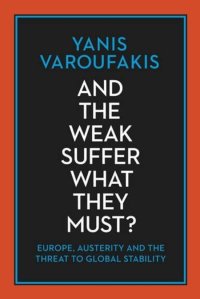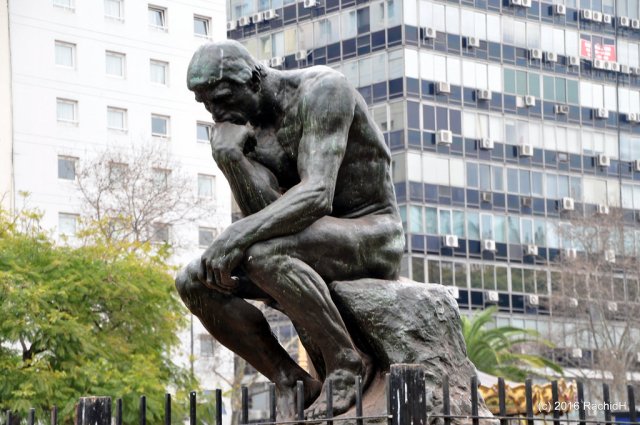I am part of the top-% of the highly educated people. Yet never have I taken one class or seminar on economics, leaving me in the dark about what macro & micro economics look like and how these processes are deeply connected to political history and our future.
With the encroaching crisis of 2008, and the many attempts the media has made to explain this crisis to the ignorant mass to which I counted myself, I did realize something was wrong – why would governments and the European Union decide to lend money to bankrupt banks and countries, money that would instantly be used to pay off other loans of the same institutions that were so ‘generously’ offering the new loans? Why would they not invest these in the backbone of what makes a country – the people actually doing the work, trying to keep their jobs and feeding their family? (Let alone take care all those without work!) I didn’t understand, but these governments must know what they were doing, right? Or not? I had no idea.
Reading to make up for ignorance
 So, I started reading. Knowing full-well that I had no frame to which I could compare and judge the validity of the arguments I read, except my background in political science and philosophy. As it turns out, a not to be dismissed background, because through my in-depth study and fascination of the concept of representational legitimacy, I was very susceptible to the historical analyses that I read about the deficit not only in economic policies, but in political legitimacy and structures of sovereignty. Yes, I’m talking about you, European Union!
So, I started reading. Knowing full-well that I had no frame to which I could compare and judge the validity of the arguments I read, except my background in political science and philosophy. As it turns out, a not to be dismissed background, because through my in-depth study and fascination of the concept of representational legitimacy, I was very susceptible to the historical analyses that I read about the deficit not only in economic policies, but in political legitimacy and structures of sovereignty. Yes, I’m talking about you, European Union!
So I started with reading Joris Luyendijk’s “Swimming with Sharks – My Journey into the World of Bankers” (2015) whose anthropological study of bankers in the City of London made me get some idea of the complexity and the small choices between different evils that people had to make and which led to the great mess I could feel myself, as a fresh graduate looking for a job. It was a good first insight into the bubbles within bubbles in a global frame which was devoid of essential checks and balances. (My Dutch review of this book was published here.)
 And now I read two books by Yanis Varoufakis, the former Greek minister of Finance. The first mainly because I liked the title and because I realized I was exactly his audience: ignorant but intelligent enough to follow his analysis of how power and economics are linked since the dawn of time. A book that to my surprise is not available in English, but the translated title would be: “The economy according to Yanis Varoufakis as he explained it to his daughter.” I published a book review of this book about a year ago, in Dutch on Zinweb.
And now I read two books by Yanis Varoufakis, the former Greek minister of Finance. The first mainly because I liked the title and because I realized I was exactly his audience: ignorant but intelligent enough to follow his analysis of how power and economics are linked since the dawn of time. A book that to my surprise is not available in English, but the translated title would be: “The economy according to Yanis Varoufakis as he explained it to his daughter.” I published a book review of this book about a year ago, in Dutch on Zinweb.
And now I just finished the second book of his, which left me breathless. As it turns out, I belong to those “few progressive Europeans [who] would [not] argue against a democratic United Stated of Europe, with a proper government elected on a pan-European ticket and answerable to a proper parliament vested with complete sovereignty over all decisions and matters.” But as Varoufakis goes on to explain in very clear and definite arguments, “this is pure wishful thinking. The sobering reality is that it is not in the European Union’s DNA naturally to evolve into a federation.” (p.219) And yet, Varoufakis argues, we have to make sure this does happen, yet be also willing to sacrifice in order to reach this, and get rid of some fundamentally flawed attitudes towards the European Union and its functioning.
The links between the 1944 Bretton Woods decisions leading to the Nixon Shock in 1971 due to the changing position of the USA and their ability to create surplus flows – all this was new to me, I hadn’t heard of all these concepts two weeks ago. But Varoufakis analysis is – although repetitive at points – strong.
Refugees, xenophobia, Nazism
It seems as if all the present discussion going on in Europe today (refugees, xenophobia, women’s position in society) are a footnote, all explainable through the larger processes going on. I’m reminded by Spinoza’s warning in the introduction to his Tractatus Theologico-Politicus, how fear breads superstition, superstition being a holding on to dogmatic principles, such as religion or the European Union – without being critical what the underlying principles that makes these dogmas important actually mean.
 Fear of foreigners breads fascism and fear of fascism breads… more fascism. Because a European Union that is not based on a legitimacy by the people, I must agree with Varoufakis, is not only authoritarian, but fascistic: it keeps those in power imposing impossible demands on the weak, “And the Weak Suffer What They Must” (2016) – as the title of his book quotes a passage from Thucydides’s Peloponnesian War.
Fear of foreigners breads fascism and fear of fascism breads… more fascism. Because a European Union that is not based on a legitimacy by the people, I must agree with Varoufakis, is not only authoritarian, but fascistic: it keeps those in power imposing impossible demands on the weak, “And the Weak Suffer What They Must” (2016) – as the title of his book quotes a passage from Thucydides’s Peloponnesian War.
Countering xenophobia by glorifying the European Union as something that is it not is dangerous. And I’m glad Varoufakis helped to open my eyes a little bit. For even though I cannot yet assess whether his proposals for resolving the Eurozone crisis is correct or not, the problems he is addressing are very real – even though the governments of Northern-Europe and their media outlets are trying to keep people, and people like me, from realizing it.

Photo Credit: rachidH Flickr via Compfight cc.